Aug 26, 2025 1:53 PM
Blindfold Test: Buster Williams
Buster Williams, who at the age of 83 has been on the scene for 65 years, had never done a Blindfold Test. The first…
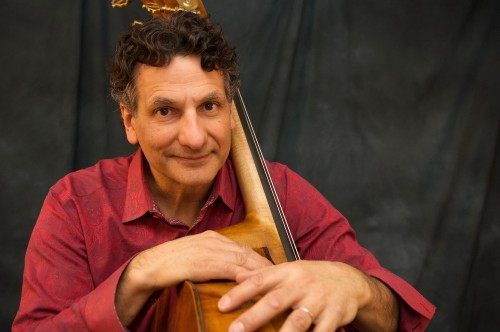
John Patitucci says that his latest outing, Soul Of The Bass, is something of a sequel to his 1991 album Heart Of The Bass.
(Photo: Melanie Futorian)Jazz pianists and guitarists perform solo all the time. Jazz bassists? Almost never. A program of unaccompanied jazz bass, like solo saxophone or drums, presents enormous challenges, even for a practitioner like John Patitucci.
“It took me 40 years to get up the courage to make this album,” he recently said by phone from his home in New York State, describing the self-released, 38-minute Soul Of The Bass. “I didn’t want people to get bored. That’s why I kept it on the shorter side.”
Patitucci’s album is constantly stimulating, thanks to an impressive variety of moods (from mysterious to funky), timbres (from deep, woody tones on double bass to sprightly treble chords on his custom Yamaha six-string electric) and musical styles (blues, Bach, post-bop and more). He wisely leavens the mix with occasional guest appearances: the spectacularly funky Nate Smith drumming on two tracks; his two talented daughters Isabella and Gracie (an L.A.-based singer-songwriter working as Greisun), who provide spectral vocal layers on one striking piece; and his wife, Sachi, a cellist with whom he creates an ethereal overdubbed octet for the album’s finale.
Once considered the enfant terrible of jazz bassists, Patitucci, now 60, is one of the most respected and recorded bassists in the genre, having appeared with performers from the worlds of jazz, pop and r&b. For the past 20 years, he has been a member— along with pianist Danilo Pérez and drummer Brian Blade—of the Wayne Shorter Quartet, as well as playing in Chick Corea’s Elektric and Akoustic bands, and issuing a series of albums under his own name.
At a sold-out album-release show in April at the Zürcher Gallery in New York’s East Village, Patitucci seasoned the hour-long program by introducing Greisun for an improvised duet, and by adding the standards “Whisper Not” and “It Could Happen To You” to his originals.
Fellow bass players came out in force, including such well-known figures as Rufus Reid (a mentor to Patitucci in his youth), Ike Sturm and John Benitez. After the show, Reid recalled Patitucci at the age of 15: “He came to my workshop for a week—he was glowing back then.” He described his former pupil as “one of those who can sustain it over the course of a long career; that’s the name of the game. He’s older, wiser, more mature, but the same sweet guy.”
During a 90-minute conversation, Patitucci spoke about what it takes to pull off a performance like the Zürcher show, the future of the Wayne Shorter Quartet, and what he’s learned from the bandleader and other jazz masters.
The following has been edited for length and clarity.
It’s unusual for a bass player to do a one-man show. What was your experience of playing that night?
I had done a gig like that once before, at a bass festival, just putting a toe in the water. I would do solo pieces sometimes with Chick Corea. There’s also a lot of “open” stuff in Wayne’s music, where I could be alone for a minute, but this was a little different. You’re presenting a broad program of music for people. You have to hold their interest and bring them on a journey. You have to relax into it. For me, it was exciting and intense. You’re juggling all the elements of music by yourself—the bass line, the melody, you’re inferring the harmony—there’s no one hitting all the chords, but you’re spelling them out by the things that you play.
You said at the show that it took you 40 years to get up the courage to make this solo album. Why?
In 1979, I heard Dave Holland’s solo record Emerald Tears. That really inspired me—his authority and the way he presented his musical ideas all alone. It’s just wood bass the whole way through. It was an important record for a lot of us bass players. But I wanted to do something a little different and incorporate some other sounds, including my six-string electric, my daughters and the cello-bass choir with my wife.
There are certain guys I’ve heard play solo. I remember hearing Ron Carter play “Willow Weep For Me” at Milt Hinton’s funeral, and it was beautiful. I’m a huge fan of Ron, and that’s one of my favorite live performances of his ever. He and Ray Brown were the biggest reasons I got into acoustic bass.
This album is described as a sequel to the 1991 Heart Of The Bass. Can you talk about the differences between the two?
I was much younger when I made Heart Of The Bass. It was a big statement for me at that time. I wasn’t playing alone back then; I was always surrounded by other musicians. And Chick, because he was so adventurous, was willing to put it out. That was the first record he chose to record on his own Stretch label. It was good that I waited 40 years—I needed some time to have the courage to really go it alone.
I wanted to make the new album different, obviously, but [the two albums] go together. The first one had large orchestrations, including symphonic pieces by Jeff Beal and Chick. I didn’t write as much on that record, whereas on this record, I wrote most of the music myself.
You’ve often spoken about Shorter’s influence on you as an improviser. Has he also influenced your composing?
Absolutely. I heard a tune of Wayne’s—“Children Of The Night”—on Art Blakey’s Mosaic album, and it moved me in the deepest of ways. I was just a kid, maybe 10, and I didn’t understand it, but I could feel it. Then, of course, later on, you hear all those remarkable Blue Note records of his. Then there’s the writing he did for Miles’ quintet with Ron Carter, Herbie Hancock and Tony Williams. There’s the Weather Report stuff and Native Dancer. So many things that blew me away.
Then getting to know him like family and doing all those orchestral things with him, seeing how he writes that stuff. His imprint on me has been heavy and for most of my life. He’s a very melodic composer, but harmonically, he puts in so much beauty, depth and ... magic. Rhythmically, very sophisticated as well.
How is Wayne’s health?
He’s doing a little better. He had a good run lately where he was able to write some music. He’s not playing. I’m not so sure, at 85, that we’ll be doing any more of that. He’s working on an opera. We’ll see what comes next, but the opera is his main focus ... . There comes a time in every musician’s life when the touring stops. But he’s a national treasure. They should just be bankrolling him and letting him write.
Do you anticipate recording more with Pérez and Blade in Children Of The Night?
I’m sure we’ll always play together. I’d love to do another album with them; we’ll see when that becomes possible. The nature of the recording is trickier now. I like to do projects on my own label, Three Faces Records. The Brooklyn album [with Blade and guitarists Adam Rogers and Steve Cardenas] was our first release. We have distribution through The Orchard and a Japanese distribution deal. It’s a lot of work to do it yourself; I couldn’t do it without my wife, Sachi. And she’s a great musician on top of it.
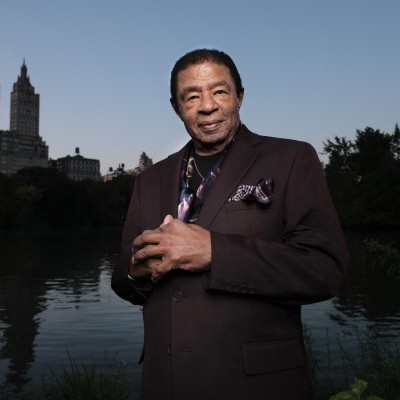
“What I got from Percy was the dignity of playing the bass,” Buster Williams said of Percy Heath.
Aug 26, 2025 1:53 PM
Buster Williams, who at the age of 83 has been on the scene for 65 years, had never done a Blindfold Test. The first…
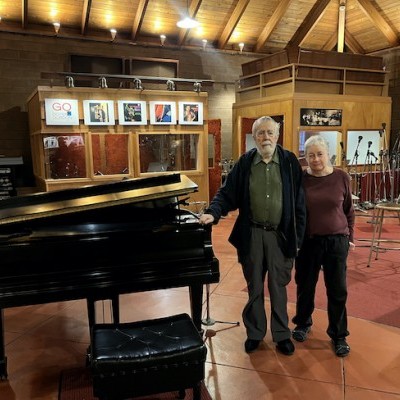
Don and Maureen Sickler serve as the keepers of engineer Rudy Van Gelder’s flame at Van Gelder Studio, perhaps the most famous recording studio in jazz history.
Sep 3, 2025 12:02 PM
On the last Sunday of 2024, in the control room of Van Gelder Studio, Don and Maureen Sickler, co-owners since Rudy Van…
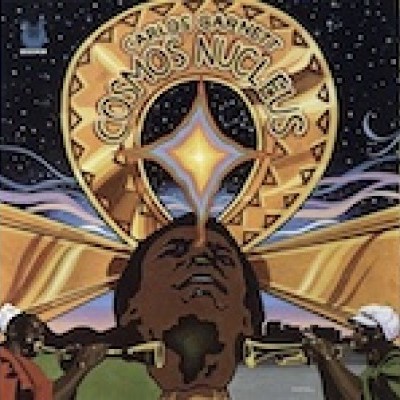
The Free Slave, Cosmos Nucleus and Sunset To Dawn: three classic Muse albums being reissued this fall by Timer Traveler Recordings.
Aug 26, 2025 1:32 PM
Record producer and “Jazz Detective” Zev Feldman has launched his next endeavor, the archival label Time Traveler…
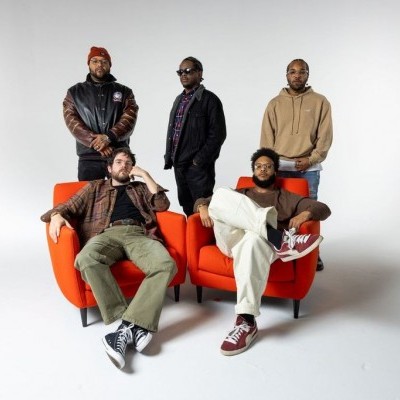
Butcher Brown, clockwise from top left: Marcus Tenney, DJ Harrison, Morgan Burrs, Corey Fonville and Andrew Randazzo. (Keyboardist Harrison couldn’t make the gig, so special guest Jacob Mann sat in with the band at the Reno Jazz Festival.)
Aug 19, 2025 12:41 PM
The band known as Butcher Brown has enjoyed the last half-decade basking in the glow from the twin engines of critical…
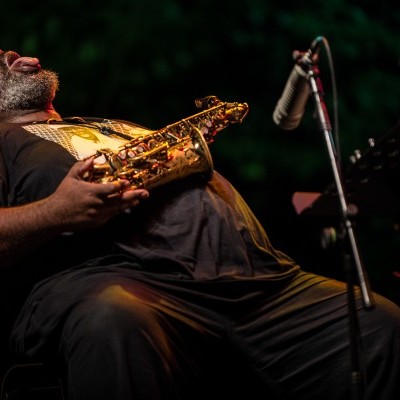
This year’s Jazz em Agosto set by the Darius Jones Trio captured the titular alto saxophonist at his most ferocious.
Aug 26, 2025 1:31 PM
The organizers of Lisbon, Portugal’s Jazz em Agosto Festival assume its audience is thoughtful and independent. Over…